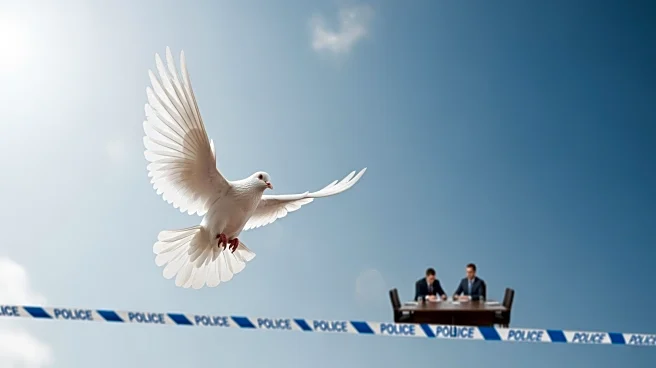What's Happening?
Israeli authorities have confirmed that the remains of a Tanzanian agricultural student, Joshua Loitu Mollel, were returned from Gaza. Mollel was killed during the Hamas-led attack on October 7, 2023. The identification of his remains marks a step forward
in the U.S.-brokered ceasefire agreement. Mollel had arrived in Israel shortly before the attack to gain agricultural experience. His return provides some solace to his family, who have faced uncertainty for over two years. Currently, six bodies of hostages remain in Gaza, with Hamas having released 22 bodies since the ceasefire began. The exchange of remains is a key component of the ceasefire deal, despite accusations of breaches by both sides.
Why It's Important?
The return of Mollel's remains highlights the ongoing humanitarian efforts amidst the conflict between Israel and Hamas. The exchange of hostages and remains is crucial for maintaining the ceasefire and easing tensions. This development impacts diplomatic relations and humanitarian efforts, as international stakeholders, including the U.S., work to stabilize the region. The situation affects families of hostages and the broader geopolitical landscape, with implications for future peace negotiations and regional security.
What's Next?
The ceasefire agreement requires Hamas to return all hostage remains promptly. Israel continues to push for faster returns, while both sides accuse each other of breaching terms. The U.S. is working on a stabilization plan for Gaza, involving international forces and diplomatic efforts to secure broader support. The ongoing exchanges and diplomatic negotiations will shape future relations and stability in the region.
Beyond the Headlines
The humanitarian aspect of hostage exchanges underscores the complex ethical and legal challenges in conflict resolution. The involvement of international bodies like the U.N. and Red Cross highlights the global dimension of the crisis. Long-term implications include potential shifts in international policy and humanitarian law regarding conflict zones.
















